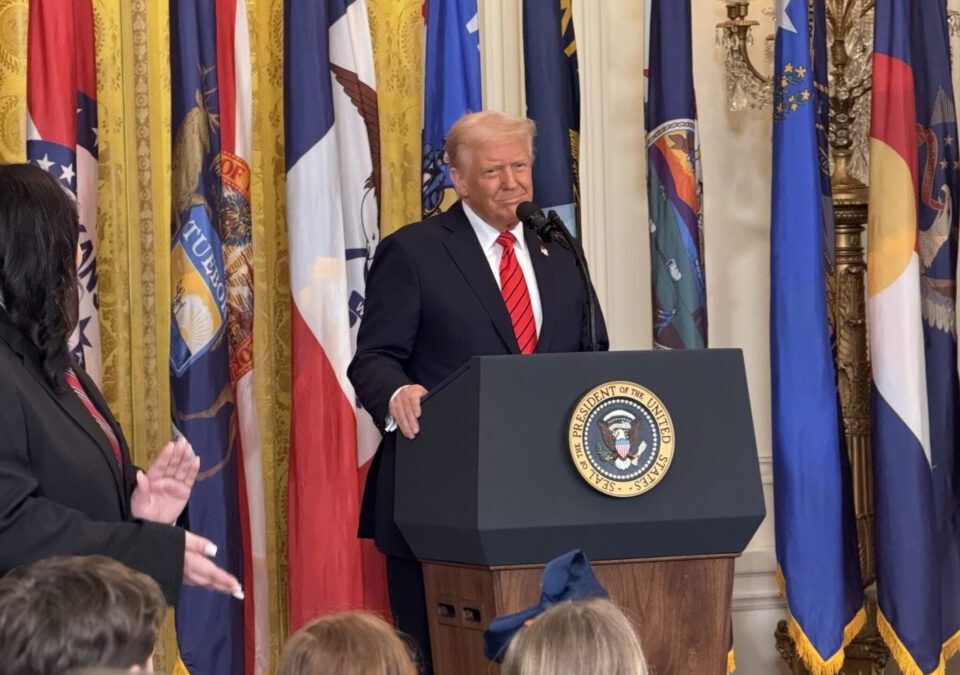
Trump Admin Targets University Accreditors For Their DEI Activism
April 25, 2025
Were The Apostles Real People
April 25, 2025Governor Tim Walz Faces Backlash for Defending MS-13 Gang Leader in State of the State Address
Minnesota Governor Tim Walz faced significant pushback during his recent State of the State address after he attacked the Trump administration’s deportation policies, specifically criticizing the deportation of Kilmar Armando Abrego Garcia. The Democratic governor’s remarks, which cast Abrego Garcia as a victim of harsh immigration enforcement, led to boos and audible criticism from parts of the audience, igniting a heated debate over immigration policies.
Walz’s Criticism of Trump’s Deportation Actions
Governor Walz condemned the Trump administration’s immigration enforcement actions, arguing that they were tearing apart the values that once made America a beacon of freedom. He singled out the deportation of Kilmar Armando Abrego Garcia, calling it an example of an unjust action that threw a father into what he described as a “Salvadorian gulag” without due process. His emotional appeal to protect immigrant rights resonated with some but was met with intense disapproval from others.
The governor’s remarks were particularly controversial because they painted Abrego Garcia as a victim of an unfair system, prompting some audience members to express their discontent vocally during the address.
The Truth Behind Abrego Garcia’s Deportation
The controversy surrounding Walz’s comments stems from differing views on Abrego Garcia’s background. While Walz and some supporters of immigration reform argue that Abrego Garcia was a family man wrongfully deported, the White House and Department of Homeland Security assert that he was a leader of the brutal MS-13 gang. According to Trump administration officials, Abrego Garcia was heavily involved in human trafficking operations and had been a significant threat to public safety.
Karoline Leavitt, a spokesperson for the Trump administration, emphasized, “This individual was a member, actually a leader, of the brutal MS-13 gang, which this President has designated as a Foreign Terrorist Organization.” This starkly contradicts the more sympathetic narrative pushed by Walz and other pro-immigration advocates, highlighting the deep divide in how individuals facing deportation are viewed.
.@PressSec debunks @TheAtlantic‘s fake story.
FACT: The individual deported to El Salvador was a member of the vicious MS-13 gang — which @POTUS designated as a Foreign Terrorist Organization.
FACT: We have credible intel proving he was involved in human trafficking.
FACT:… pic.twitter.com/45l5grO262
— Rapid Response 47 (@RapidResponse47) April 1, 2025
Walz’s Push for Immigrant Rights and Political Ambitions
Walz used his speech to position himself as a champion of freedom and immigrant rights, arguing that true freedom should extend to everyone, not just certain privileged groups. While his stance on immigration was applauded by some, it alienated others who felt that national security concerns and the safety of American citizens should take precedence over defending individuals like Abrego Garcia.
BREAKING: Tim Walz just got booed at his own state of state address after attacking Trump for deporting illegal immigrants.
“University students being swept up, shoved into unmarked vans, and fathers being tossed into Salvadorian gulags without a hint of due process.”
“BOO!” pic.twitter.com/DEewnooZWJ
— Dustin Grage (@GrageDustin) April 24, 2025
The political implications of Walz’s address are also significant. By taking a strong stance on immigration rights, Walz is likely seeking to solidify his progressive base ahead of potential re-election bids or even a run for national office in 2028. However, his decision to focus on defending deported immigrants like Abrego Garcia may also galvanize conservative voters who support stricter immigration policies and stronger border security.
The speech serves as a microcosm of the broader national debate on immigration policy. As the 2028 election cycle approaches, the divide between Democrats advocating for a more compassionate approach to immigration and Republicans pushing for tougher enforcement and border security will remain a key issue in American politics.




